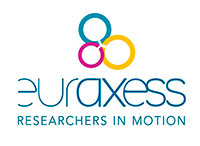Bolsa de PD em Sensoriamento Remoto
Post-doctoral fellowship in Remote Sensing
Nº: 1380
Área de conhecimento: Engenharia
Field of knowledge: Engineering
Nº do processo FAPESP: 2014/26767-9
FAPESP process: 2014/26767-9
Título do projeto: Global Sustainable Bioenergy Initiative: Geospatial & environmental Analysis of pastureland intensification for bioenergy
Project title: Global Sustainable Bioenergy Initiative: Geospatial & environmental Analysis of pastureland intensification for bioenergy
Área de atuação: Sensoriamento Remoto
Working area: Remote Sensing
Pesquisador responsável: Rubens Augusto Camargo Lamparelli
Principal investigator: Rubens Augusto Camargo Lamparelli
Unidade/Instituição: Feagri / Unicamp
Unit/Instituition: Feagri / Unicamp
Data limite para inscrições: 18/02/2017
Deadline for submissions: 2017-02-18
Publicado em: 14/12/2016
Publishing date: 2016-12-14
Localização: Av. Cândido Rondon, 501 Campinas
Locale: Av. Cândido Rondon, 501 Campinas
-
Resumo
Summary
O Projeto Temático FAPESP "Global Sustainable Bioenergy Initiative: Geospatial & environmental analysis of pastureland intensification for bioenergy" está iniciando um processo de seleção para uma bolsa de PosDoc intitulada "Geospatial analysis of pasture-based livestock management in Brazil and mapping mixed croplivestock systems with remote sensing". Este projeto está sendo liderado pelo Dr. John Sheehan no programa da FAPESP SPEC (São Paulo Excellence Chair). O projeto terá três anos de duração e foi concebido como uma contribuição à iniciativa mundial de Bioenergia Sustentável (Global Sustainable Bioenergy initiative GSB), focando em análise geoespacial relevante à Bioenergia no contexto global. A bolsa de PosDoc tem como foco análise do Uso da Terra, ao longo do tempo, para detectar o potencial de intensificação de uso da terra, principalmente com o sistema de pecuária-cultura para explorar a contribuição deste, no contexto da Bioenergia. O PosDoc estará sob supervisão do Dr. Rubens Lamparelli (Unicamp), em análise multitemporal para discriminação de sistemas de intensificação do uso da terra com pecuária-cultura.
Requerimentos exigidos do candidato
a) O pesquisador deve ter sua área de pesquisa relacionada ao Uso da Terra, incluindo (mas não limitado a) geografia, ecologia, agronomia, engenharia e recursos naturais.
b) Experiência relevante em trabalho de campo e sensoriamento remoto, com indicações comprovadas por publicações na área.
c) Habilidades avançadas em programação com R, IDL, Matlab e/ou Python.
d) O candidato deve ter concluído o doutorado a menos de sete anos antes do começo desta bolsa.
e) Ao PosDoc contratado exige-se dedicação em tempo integral ao projeto.
f) O PosDoc contratado não poderá ter qualquer outro emprego formal/não formal, tão pouco receber qualquer outro salário, remuneração, durante o tempo da bolsa, de atividades de qualquer natureza.
Composição da bolsa
A bolsa de PosDoc inclui uma mensalidade e um fundo de reserva, disponíveis por um ano. A bolsa pode ser estendida por mais um ano.
a) A bolsa tem o valor de R$ 6.819,30.
b) O fundo de pesquisa tem como objetivo subsidiar atividades ligadas diretamente ao projeto. O fundo equivale a 15% do valor anual da bolsa.
Processo de seleção
O candidato deverá enviar os seguintes documentos, em formato pdf, para o e-mail gsb.spec@feagri.unicamp.br, incluindo no campo de assunto o número do projeto (2014/26767-9) e o título (Sensoriamento Remoto Postdoc):
a) CV atualizado.
b) Uma carta, com não mais que duas páginas, descrevendo sua experiência profissional e motivação para esta posição.
c) Duas cartas de recomendação de profissionais de sua área de atuação.The FAPESP Thematic Project "Global Sustainable Bioenergy Initiative: Geospatial & environmental analysis of pastureland intensification for bioenergy" is starting a selection process for a postdoctoral fellowship entitled "Geospatial analysis of pasture-based livestock management in Brazil and mapping mixed croplivestock systems with remote sensing". The project is being led by Dr. John Sheehan under the auspices of FAPESP's São Paulo Excellence Chair program. The broader project is a 3-year Thematic Project, conceived as a contribution to the Global Sustainable Bioenergy initiative, focusing on global-scale geospatial analysis relevant to bioenergy. The postdoctoral fellow will lead the effort to detect land use over time and analyze the potential for intensified livestock and crop production, classify land as either cropland or pasture and improvement of mapping mixed crop-livestock system. The post-doc will work under supervision of Dr. Rubens Lamparelli (Unicamp) on multi-temporal analysis for discriminate mixed crop-livestock system.
Candidate requirements
a) The candidate should have a PhD in a field related to analysis of land use including but not limited to geography, ecology, agronomy, engineering and natural resource management.
b) Relevant experience in field work and remote sensing as indicated by publications in the field.
c) Advanced skills in programing specially with R, IDL, Matlab and/or Python.
d) The candidate should have concluded a doctorate less than seven years before the beginning of the PD fellowship.
e) The fellowship demands full time dedication to the research project.
f) The fellowship holder may not hold any formal or informal employment nor receive, during the term of the fellowship, a fellowship from another entity, salary or remuneration deriving from the exercise of activities of whatever nature.
Fellowship components
The Post-Doctorate fellowship includes a monthly stipend and research contingency funds, available for a year, with a potential extension for another year.
a) The stipend of the FAPESP post-doctoral fellowship is R$ 6.819,30.
b) The Research Contingency Funds are intended for use in activities developed by the fellowship holder, strictly related to the fellowship research project, during the term of the fellowship. The funds are equivalent to 15 per cent of the annual value of the fellowship.
Selection process
The candidate should send the following documents in pdf format to gsb.spec@feagri.unicamp.br, including in the subject line the project number (2014/26767-9) and the title (Remote Sensing Postdoc):
a) An updated CV.
b) A cover letter with no more than two pages highlighting your professional experience and motivations for this position.
c) Two letters of recommendation from professionals in your field.
More information about the fellowship is at: www.fapesp.br/en/5427.
-
Enviar
Oportunidade - Oportunidades Abertas Open Opportunities
-
Fellowships Opportunities
